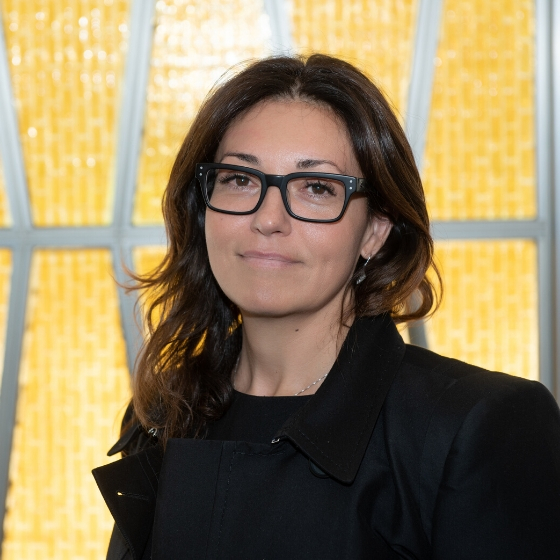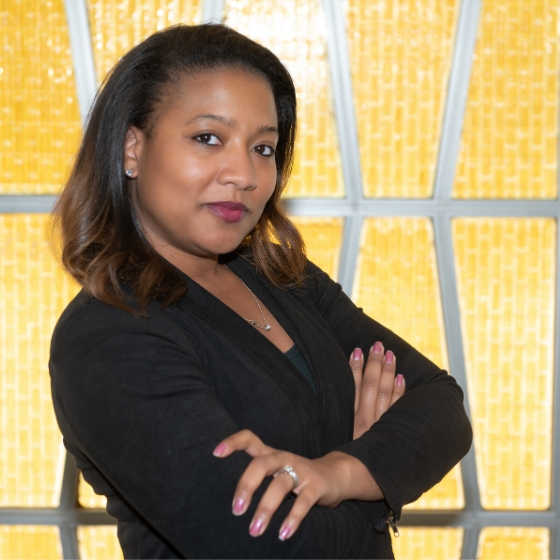College launches clinic and chat to help meet demand for mental health services

Set to launch during National Mental Health Awareness Month, the Wayne State University College of Education's new Mental Health and Wellness Clinic (MHaWC) will provide free services to students, families and communities throughout Michigan. Through their work with the clinic, faculty members and mental health providers Shirley Mack, Francesca Pernice and Brandi Pritchett-Johnson are preparing budding practitioners for counseling and psychology careers offered through programs in the Division of Theoretical and Behavioral Foundations.
"The counseling and psychology programs provided separate training experiences for students matriculating through the counseling or counseling psychology programs. They have come together to offer services under the MHaWC umbrella," said Pernice, associate professor and director of the counseling psychology program, and a licensed psychologist and couples and family therapist. "The vision was to bring our separate training programs together under one initiative, which is how the MHaWC clinic began."
As a graduate training clinic, the MHaWC has several programs in various overlapping areas of mental health theory and practice, including art therapy, clinical mental health counseling, counseling psychology, rehabilitation counseling, school psychology and school counseling. Together, clinicians-in-training offer services to individuals, children, couples, families and groups under supervision from licensed faculty.

A licensed professional counselor and certified grief counselor, Mack serves as clinical director and lecturer in the counselor education program. She said the COVID-19 pandemic has increased the need for mental health services.
"Tensions will increase the longer people are quarantined at home alone or with their children and significant others," she said. "We need to be available to talk to people about challenging situations and feelings of isolation and hopelessness."
Mack noted that loss of normative experiences, including students attending proms and graduations, people gathering in groups, and families visiting their loved ones, combined with escalating unemployment, illness and death, can increase anxiety, depression, substance abuse and suicidal ideation. She believes there will be more instances of vicarious trauma (distress caused by seeing others experience crisis) and stress disorders, particularly among health care workers on the front lines.
The clinic is prepared to meet the needs of diverse populations and families. Aspiring clinicians are trained in family therapy, so parents and children can attend sessions together. The clinic can also provide resources and support to individuals and family members who are living with mental illness.
Mack, Pernice and Pritchett-Johnson have spent the past month training students to provide services by telephone and video conferencing.

"Providing mental health services virtually is essential, especially during the pandemic," said Pritchett-Johnson, director of clinical training for the doctoral program in counseling psychology and a licensed psychologist. "Telehealth is becoming more accepted by accrediting bodies, and it is one of the safest ways to provide support. Before, we had the ability to serve students on campus and individuals in the metropolitan Detroit community. Now, we can service people throughout Michigan."
All three faculty members have also been involved in efforts to meet the growing demand for mental health services among students. Launched in February, Warrior Chat is a free, confidential peer counseling service offered through a collaboration with the Dean of Students Office, Counseling and Psychological Services, and the Division of Theoretical and Behavioral Foundations.
Graduate students in the counselor education and school and community psychology programs serve as peer counselors and are available on the third floor of the Student Center, directly across the hall from the Dean of Students Office (Room 301). No appointment is necessary, and Warrior Chat is offered every afternoon and evening, except for Saturday. During the COVID-19 crisis, telehealth services will be offered.
Peer counselors talk to students about stressors of being in college, including fitting in, roommate conflicts, homesickness and academic stress. If they believe a more significant concern needs to be addressed, peer counselors refer students to other entities. Students who need emergency assistance should call the CAPS emergency number.
Pritchett-Johnson said Warrior Chat and the clinic are important resources for clinicians-in-training, campus and the community.
"Providing peer-to-peer support through Warrior Chat helps counselors-in-training learn soft skills. The clinicians-in-training delivering services through the clinic are gaining hands-on experience with clients. Both initiatives support what students learn in class and from textbooks," said Pritchett-Johnson. "The college is doing its due diligence to ensure the next generation of mental health providers is fully and adequately trained and culturally responsive. It is also providing a much-needed service to the community."
All three faculty members are excited about the potential impact the clinic could have on mental health services, training and research. Right now, the trio is focused on launching the clinic, which begins servicing clients on May 11. Interested individuals, couples and families can make appointments by completing the online form at go.wayne.edu/mhawc or calling 313-577-8744 or 313-577-1681.
Pernice said, "Our more than 50 therapists are ready and waiting to help."
|
Advice for virtual counseling sessions Getting the most out of a counseling session is straightforward if you go to the provider's office, but it may not be as simple when you are meeting virtually. Mack, Pernice and Pritchett-Johnson offer these suggestions:
|
For more information about the Mental Health and Wellness Clinic, visit go.wayne.edu/mhawc or email mhawc@wayne.edu. To learn more about Warrior Chat or to send a chat request, go to warriorlife.wayne.edu/chat.